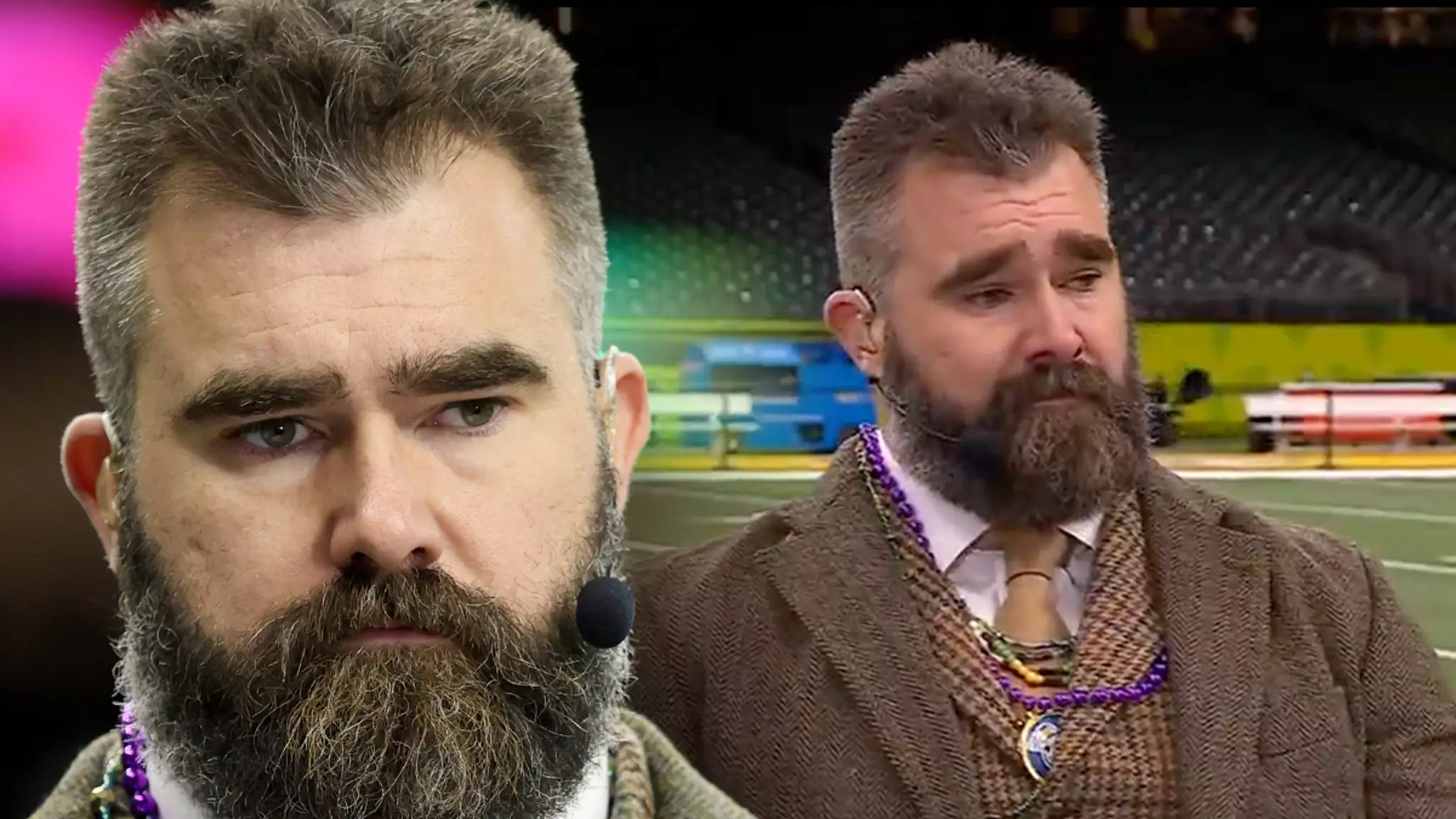On a poignant Sunday just hours before the highly anticipated Super Bowl between the Philadelphia Eagles and the Kansas City Chiefs, NFL legend Jason Kelce was visibly overcome with emotion as he recalled the stories of two individuals profoundly affected by a tragic event in New Orleans. During a segment aired on ESPN, the focus was on Ryan Quigley, a fervent Eagles supporter who not only survived a horrific attack on Bourbon Street but also lost his dear friend, Tiger Bech. This heart-wrenching moment served as a reminder of the fragility of life and the resilience of the human spirit.
As the camera captured Quigley—a survivor navigating life with crutches—viewers were reintroduced to the harsh realities faced by many as a result of senseless violence. Quigley had given up on ever returning to New Orleans after the attack that left him deeply scarred, both physically and emotionally. However, a glimmer of hope emerged when the Eagles extended an invitation to attend the Super Bowl, a gesture that reignited his spirit and offered a bridge back to a city filled with mixed memories. The fact that he accepted this invitation speaks volumes about his courage and commitment to honor his friend’s legacy.
Through this emotional narrative, it became evident that for Quigley, attending the game was not just about watching the Eagles play; it was about fulfilling a promise to Bech. It highlighted that even in the aftermath of heartbreaking loss, there lies the potential for healing, joy, and community bonding. The juxtaposition of a joyful sporting event with the stark realities of personal loss paints a complex picture of human experience.
When the camera returned to Kelce, his tears were a visual testament to the weight of the stories shared. As the former center for the Eagles fought to regain his composure, he expressed admiration for Quigley and others who have bravely journeyed through recovery after the tragic incident. Kelce’s candid response exemplified how sports can serve as a cathartic outlet, a source of unity, and an arena where resilience is celebrated. The raw emotion conveyed by Kelce showcased the connection athletes often feel toward their fans and the greater community.
His words echoed a profound sentiment: amid the darkness of tragedy, beautiful moments can arise. It’s a reminder that while grief can cast a long shadow, shared experiences—especially those tied to passionate sporting events—can bring people together, fostering support and understanding. As Quigley took flight to begin this new chapter, the anticipation of honoring him and others affected by the tragedy during the Super Bowl festivities indicates a collective commitment to solidarity and healing.
In the lead-up to the big game, it was announced that Quigley, Bech, and other victims would be honored on the field, a powerful symbol of remembrance and a testament to the strength of community. It emphasizes the notion that sports are not just games but platforms that can elevate important narratives and foster healing.
Jason Kelce’s emotional moment serves as an important reminder of the human stories intertwined with sports events, showcasing how they can inspire resilience even in the face of profound loss. As fans gathered for the Super Bowl, they would do so not only to celebrate their teams but to collectively honor those who have endured unimaginable heartache, representing strength in unity and hope for a brighter future.

